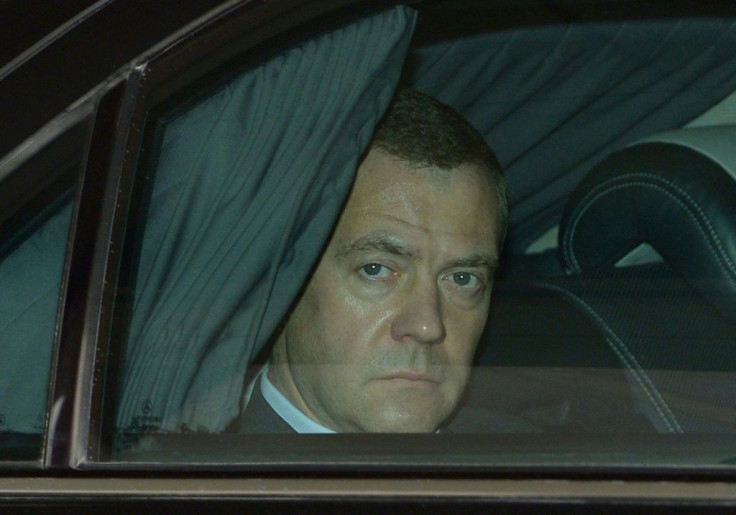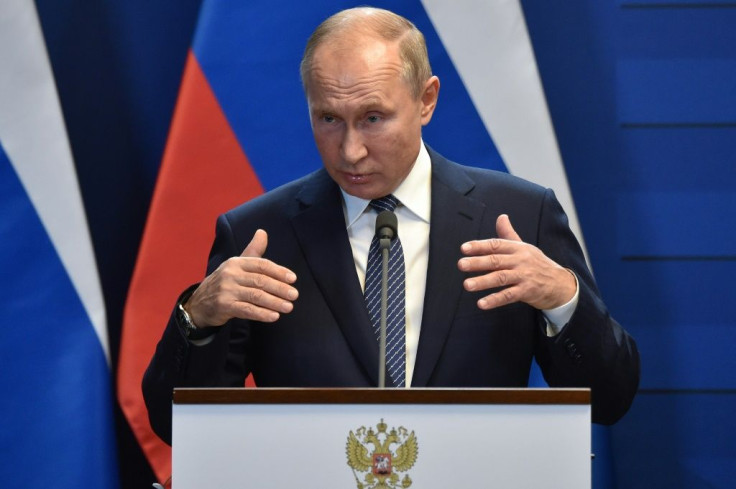Massive Changes For Russia? Putin Seeks To Reshape Government With Constitutional Overhaul
KEY POINTS
- Putin proposed a referendum that would limit presidents to two terms and shift more power to the prime minister and Parliament
- The changes include formation of a State Council
- Medvedev is being shunted to the newly created post of deputy head of the Kremlin security council
Update: 12:45 p.m. EST
Russian President nominated Mikhail Mishustin, head of the Federal Tax Service, as his new prime minister, replacing Dmitry Medvedev, the Tass news agency reported.
Original story
Russian President Vladimir Putin moved on Wednesday to consolidate his power and pave the way for influencing the government once he steps down, announcing constitutional changes that would weaken the presidency and give more power to Parliament, a newly created State Council and the prime minister.
Prime Minister Dmitry Medvedev and his entire Cabinet resigned to pave the way for the changes but will remain in office until a new government can be formed, the Tass news agency reported. Medvedev was to be appointed to the newly created post of deputy head of the Kremlin security council.

“It is evident that we, as the government of the Russian Federation, should provide our country’s president with an opportunity to take all the necessary decisions in these conditions. I believe it right for the government of the Russian Federation to step down,” Medvedev said.
The announcement sent Russian stocks higher.
Timothy Ash, senior emerging markets strategist at Bluebay Asset Management, said in a research note Russian Economy Minister Maxim Oreshkin is a likely pick for prime minister.
“I think all this is a response to opinion polls reflecting popular dissatisfaction with government and their lots in life, and ebbing support even for Putin,” Ash wrote, adding, “[Putin] will sell this new, fresh government as part of a fresh start/reach out to the West.”
Putin’s current term expires in 2024. He has led Russia for more than 20 years, the longest since Josef Stalin.
Opposition leader Alexei Navalny called the proposed changes a ploy to help Putin retain power.
“The only goal of Putin and his regime is to stay in charge for life, having the entire country as his personal asset and seizing its riches for himself and his friends,” Navalny wrote on Twitter.
The constitutional changes, which were first floated last month at his annual press conference, are to be put up to a referendum.
“Our society is clearly demonstrating a demand for change,” Putin said at the start of his annual address to Parliament Wednesday.
The changes include limiting presidents to two terms, allowing the lower house of Parliament, the Duma, to elect the prime minister and allowing the upper house to confirm judges and the heads of the security services.
"I know that a constitutional provision is being discussed in our society that the same person should not be president for more than two consecutive terms," Putin said. "I don't think this is a fundamental issue, but I agree with that.
"I propose ... entrusting the State Duma with the power to approve the candidacy of the prime minister, and then, per the prime minister's proposal, [appoint] all deputy prime ministers and federal ministers. In this case, the president will be obliged to appoint them, that is, he will not have the right to reject Parliament-approved candidacies."
“The transition of power is certainly underway, and Medvedev has been removed from the transition conversation,” Tatiana Stanovaya, founder of Russian political analysis firm R. Politik, told the Financial Times.
“Everyone has been sick of Medvedev for ages. He should have resigned after the [2018] presidential elections, but Putin needed to resolve who his replacement would be and where he would put Medvedev. Now Putin has decided what to do with his future and they are going their separate ways.”
Analysts had speculated about whether Putin, 67, planned to become prime minister for a second time when his term ends, planned to change the constitution so he could serve a third straight term or become head of a proposed joint state with Belarus.
In announcing the changes, Putin also unveiled social spending worth as much as $8.1 billion, about 4 percent of the Russian gross domestic product, on child welfare, public sector salaries and free school lunches.

© Copyright IBTimes 2024. All rights reserved.












